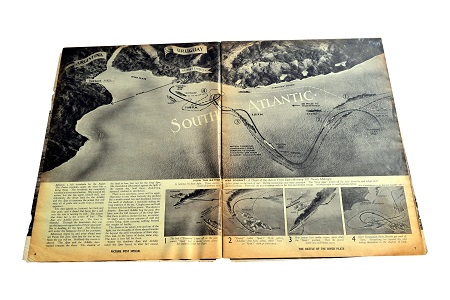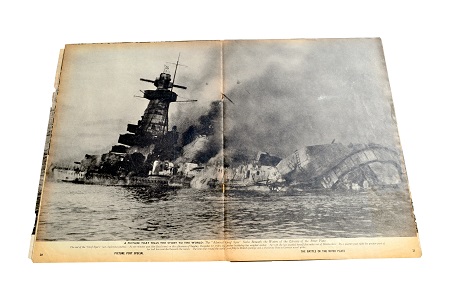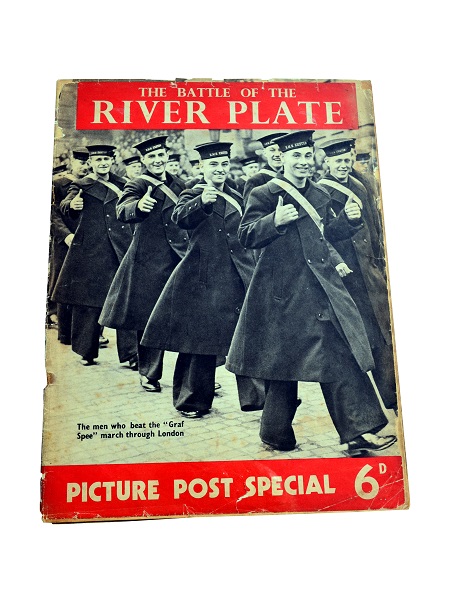
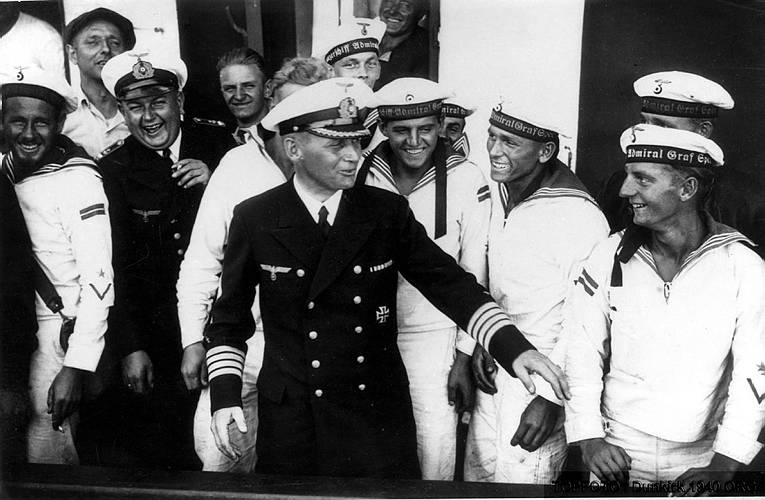
In the ensuing battle, Exeter was severely damaged and forced to retire; Ajax and Achilles suffered moderate damage. The damage to Graf Spee, although not extensive, was critical; her fuel system was crippled and additionally, she was running short of ammunition for her main 11 inch guns. Ajax and Achilles shadowed the German ship until she entered the port of Montevideo, the capital city of neutral Uruguay, to effect urgent repairs.
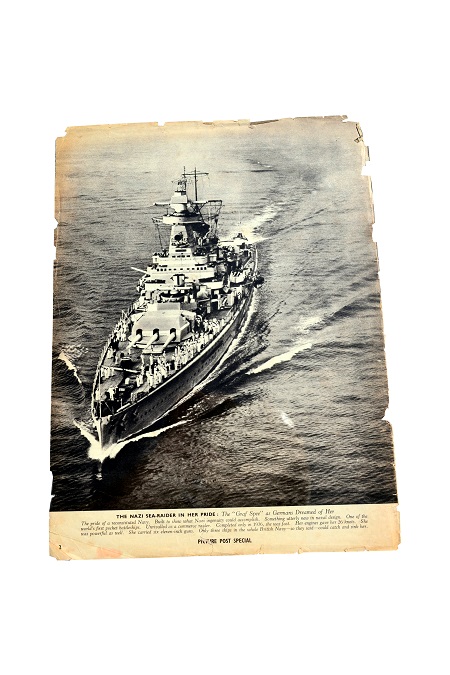
After Graf Spee's captain Hans Langsdorff was told by the Uruguayan authorities that his stay could not be extended beyond 72 hours, he consulted with his command in Germany. He received orders that permitted some options, but not internment in Uruguay as the Germans feared that Uruguay could be persuaded to join the Allied cause. Ultimately, believing false British reports that a much heavier Allied task force was being assembled off the coast of South America, he chose to scuttle his ship in the River Plate estuary on 17th December, to avoid unnecessary loss of life for no particular military advantage. The decision was said to have infuriated Adolf Hitler. The crew of Admiral Graf Spee was taken to Buenos Aires, Argentina, where Captain Langsdorff committed suicide on 19th December.
